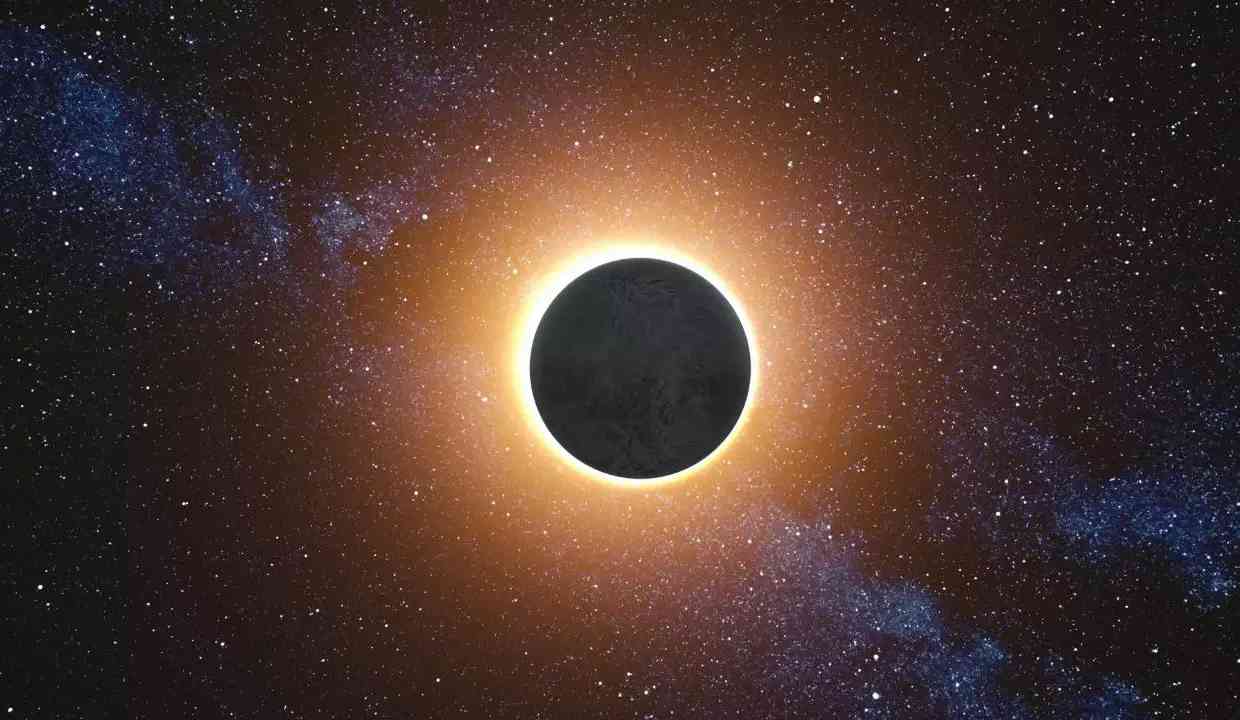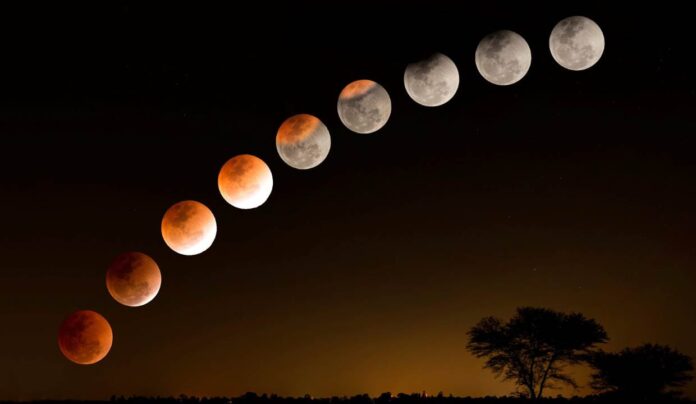Lunar eclipse 2024: In the cosmic ballet of astronomical events, the first lunar eclipse of 2024 is set to coincide with the vibrant festival of Holi, creating a confluence of cosmic and earthly spectacles. This penumbral lunar eclipse, although not visible in India, holds significance for sky lovers around the world. Let’s explore the intricate details of this astronomical event, including its time, date, and more.
Understanding Penumbral Lunar Eclipse
A penumbral eclipse occurs when the Moon passes through the outer portion of Earth’s shadow, known as the penumbra. This results in the Moon’s surface becoming slightly hazy, often difficult to discern with the naked eye. Unlike other lunar eclipses, a penumbral eclipse lacks a dramatic visual spectacle, but it remains a captivating astronomical phenomenon.
Lunar eclipse date and time

The lunar eclipse of 2024 is scheduled to coincide with the celebration of Holi on March 25. The timeline of the eclipse is as follows:
Start: 12:53 am EDT (0453 GMT)
Maximum intensity: 3:12 am EDT (0712 GMT)
End: 5:32am EDT (0932 GMT)
The total duration of the eclipse will be approximately 4 hours 39 minutes.
Eclipse visibility
Sadly, the eclipse will not be visible in India. It will grace the skies of America, Europe, Australia, Africa, North/East Asia, Pacific, Atlantic, Arctic and Antarctica. Enthusiasts in select regions, including parts of Europe and Asia, will get the opportunity to witness this astronomical phenomenon firsthand.
Sutak time and Holi celebrations
In Hindu tradition, the Sutak period is preceded by important astronomical events, advising against religious activities or auspicious ventures. However, since the penumbral lunar eclipse is not visible in India, the Sutak period has no validity, and religious activities can proceed without any hindrance.

Since Holi coincides with this astronomical event, the joyous celebration of the festival remains unaffected, symbolizing the triumph of light over darkness and happiness over sorrow.
Conclusion
As the cosmic fields align and earthly celebrations abound, the lunar eclipse of 2024 and the festival of Holi intersect, offering a glimpse of the cosmic symphony that governs our universe.
Although the eclipse may not be visible in India, its significance resonates across continents, uniting sky lovers in awe and wonder. As we marvel at the divine scene above, let us also enjoy the colours, camaraderie and joyful spirit of Holi, celebrating the innumerable wonders of life in all their glory.
Also Read: Discussion on Patanjali advertisements: Supreme Court issues notice to Baba Ramdev


